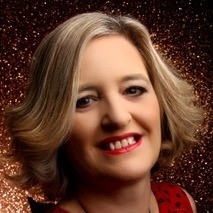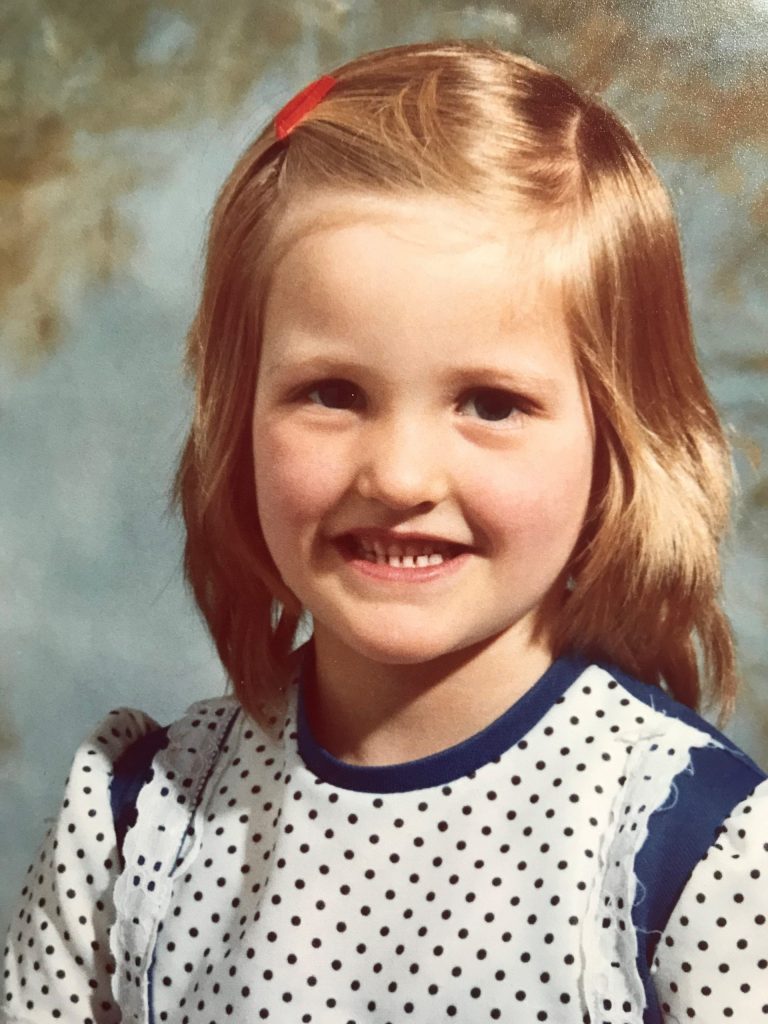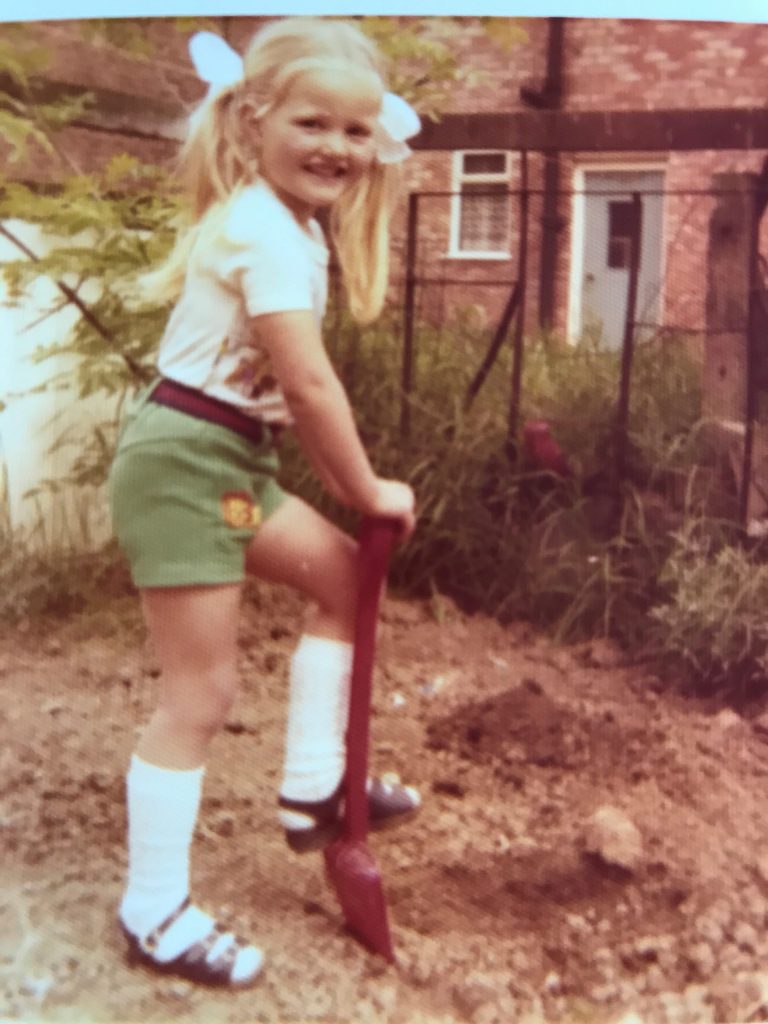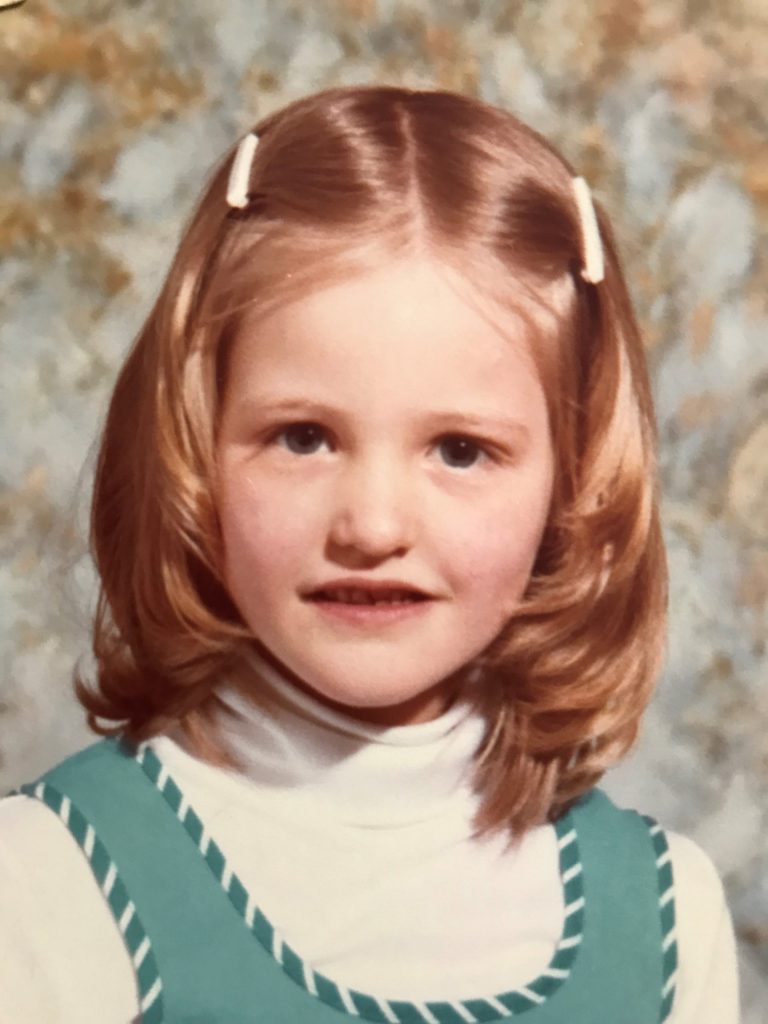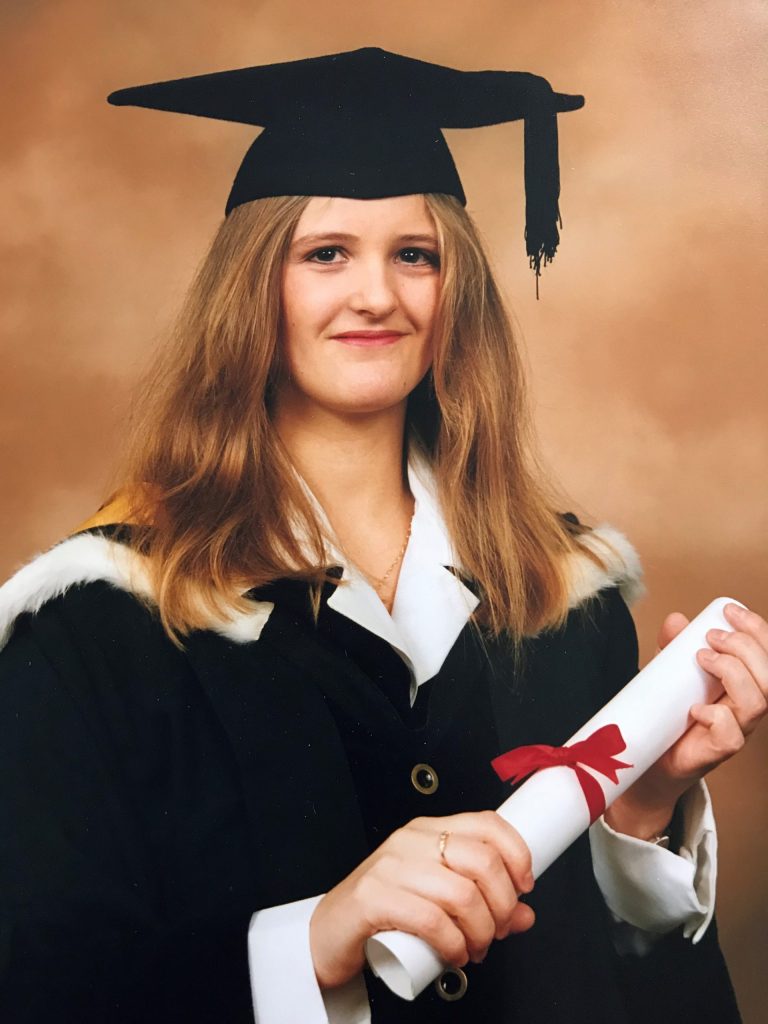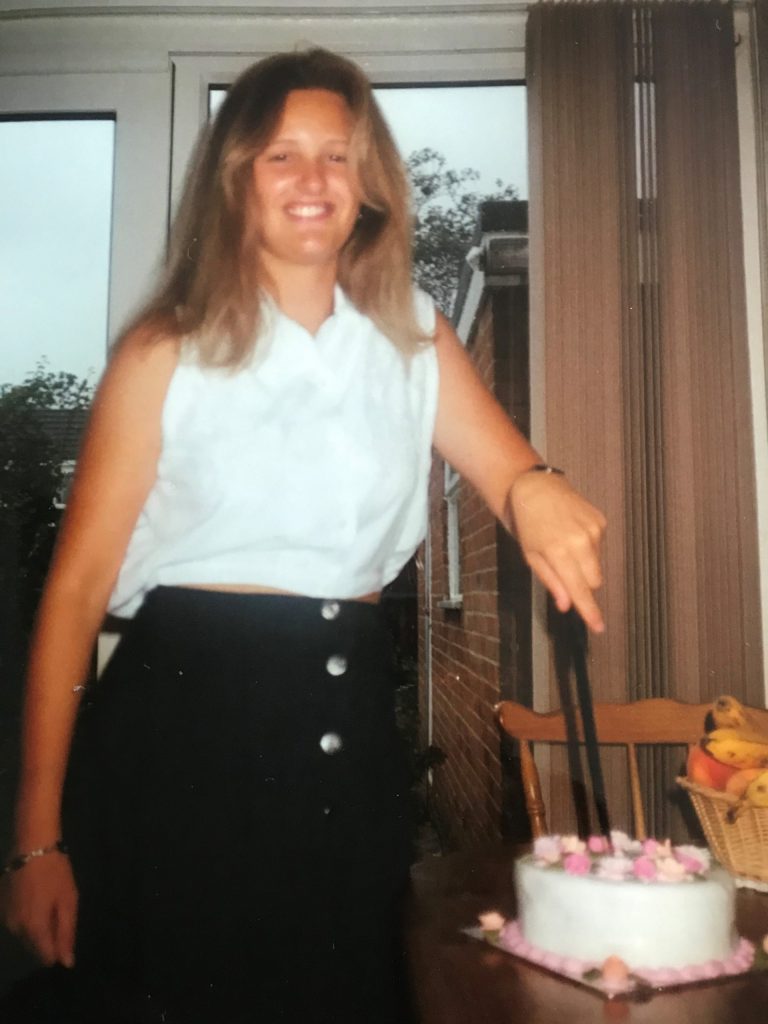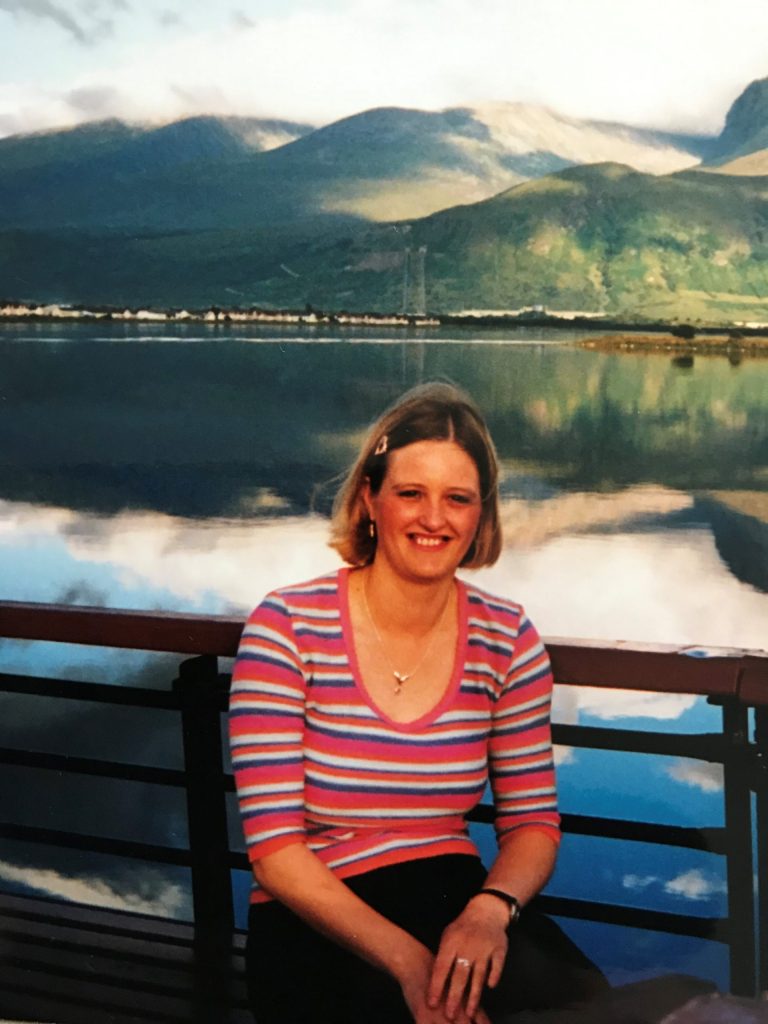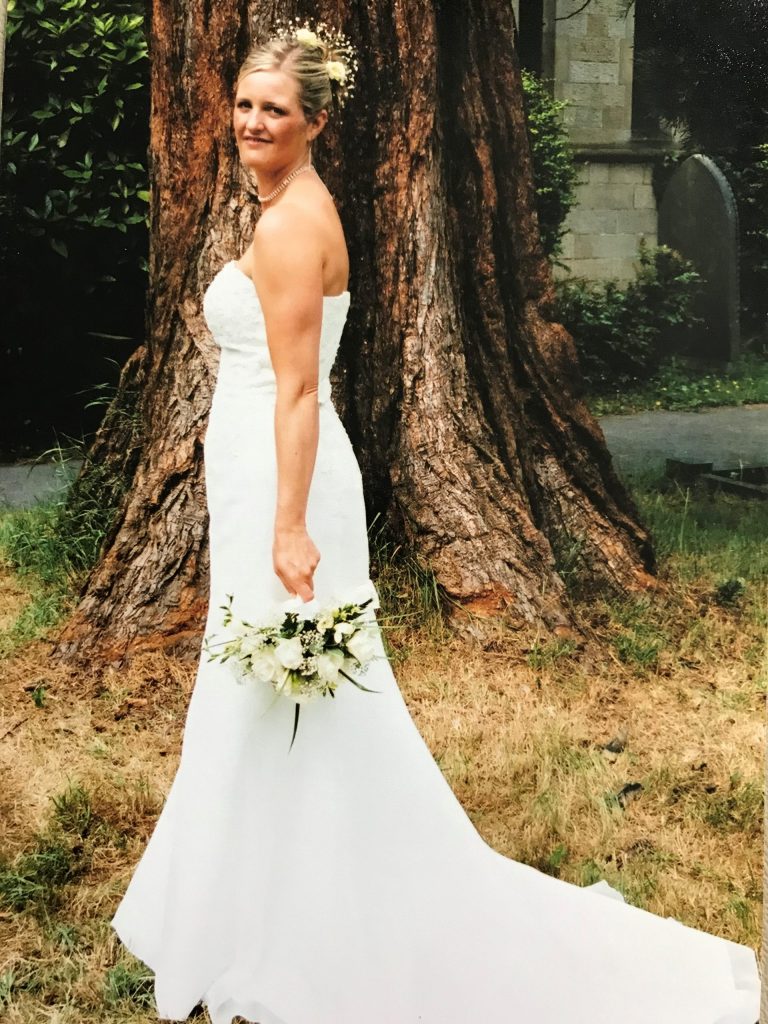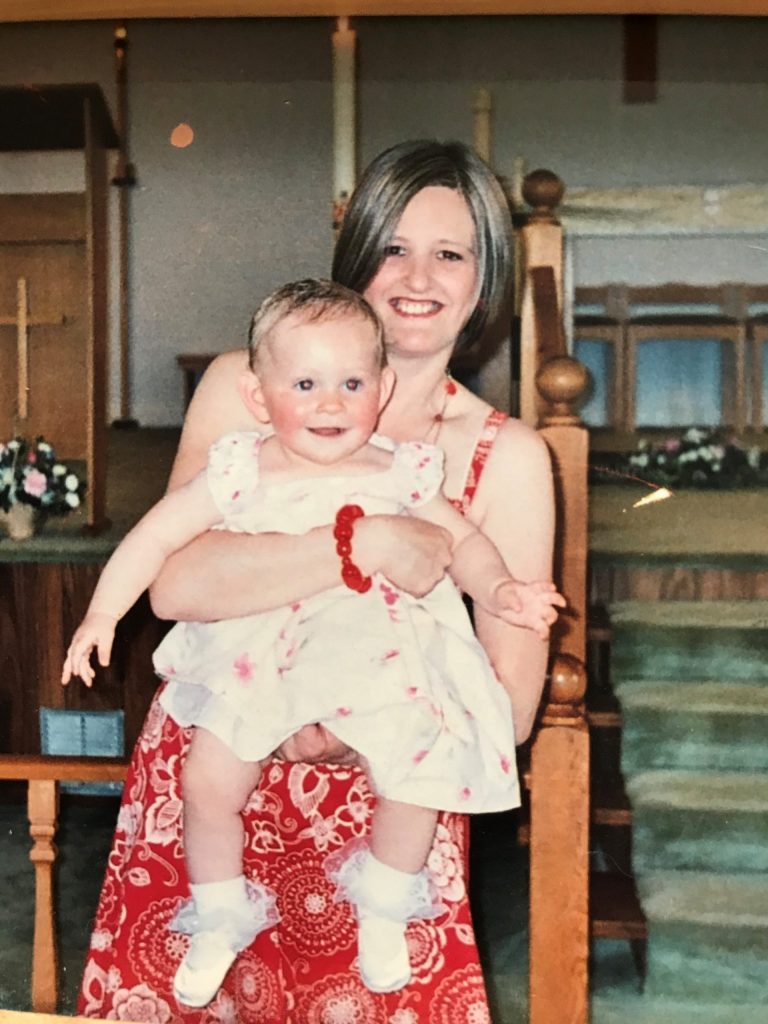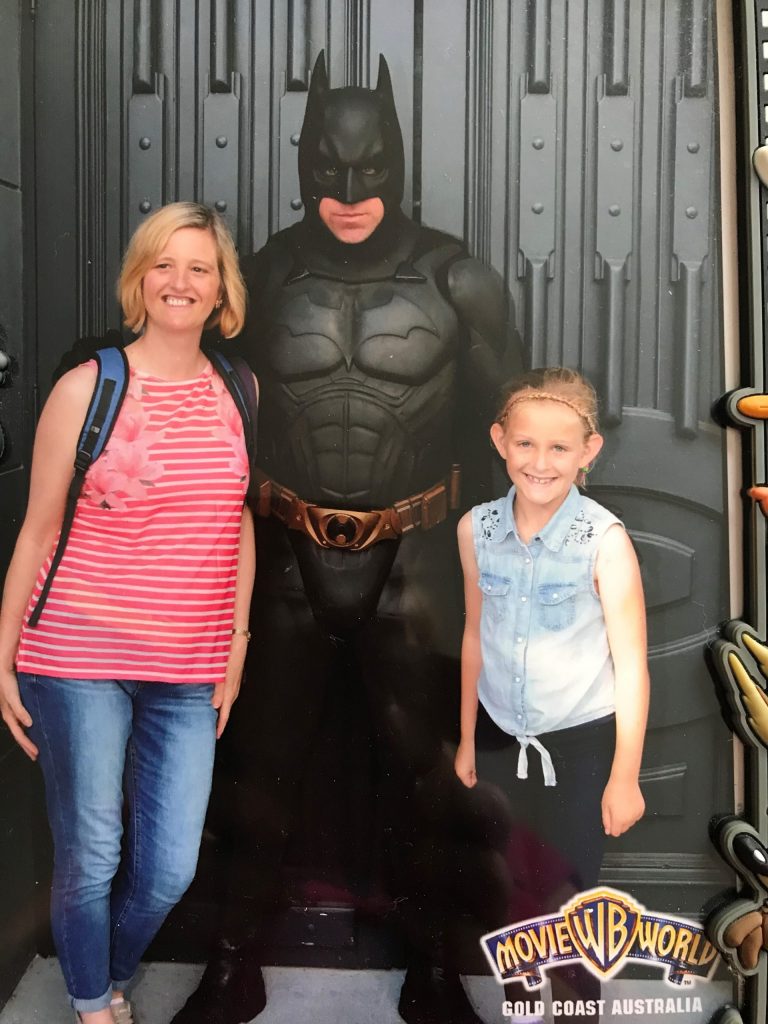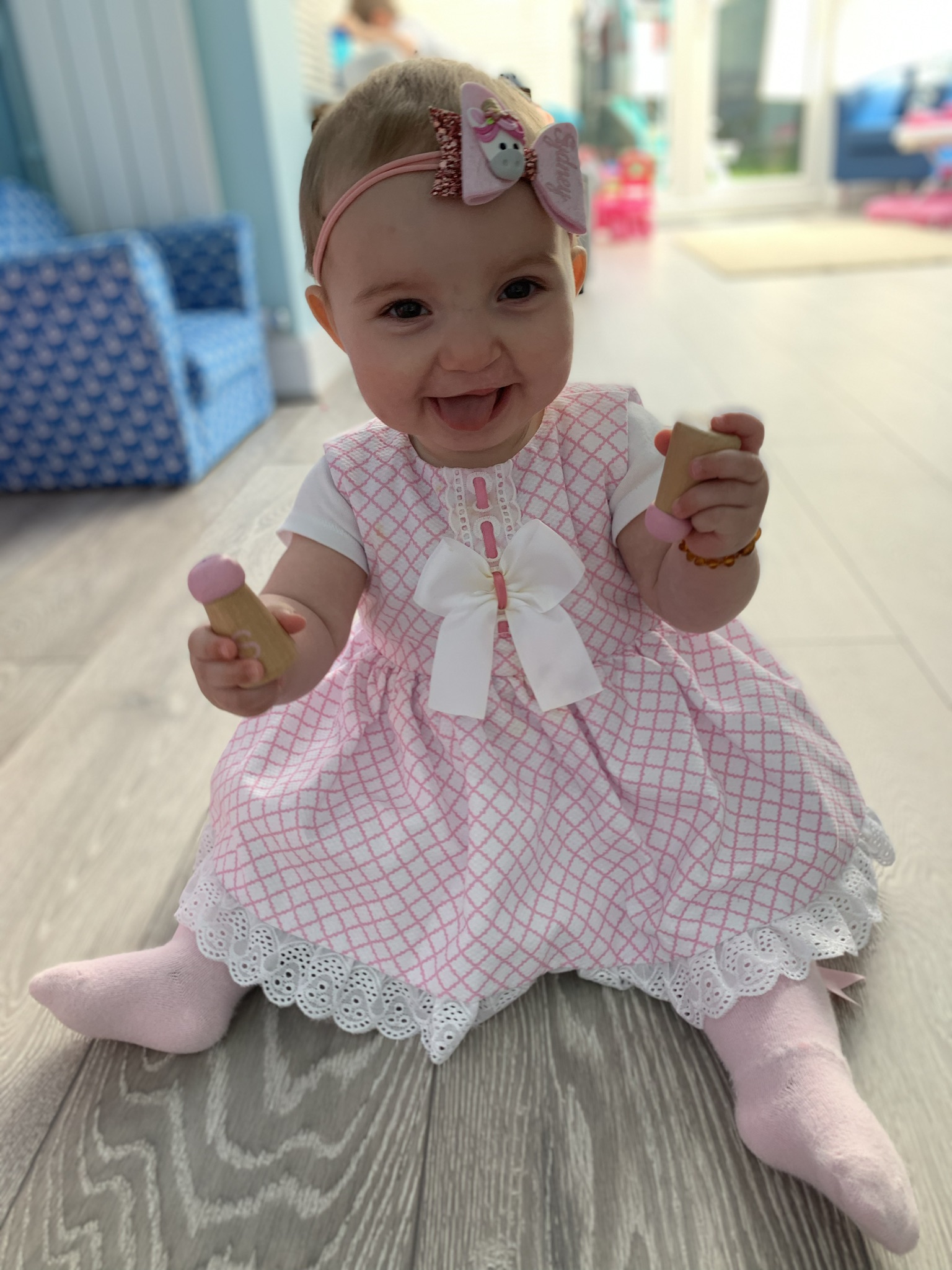
Susan’s story
Following an unsuccessful surgery when she was very young, Susan attempted to have her cleft palate repaired multiple times throughout her life.
It wasn’t until she was in her 40s when this finally happened. Here’s her incredible story.
What were your very early experiences of your cleft? When was your cleft diagnosed?
‘I was born in the early 70s with a cleft palate. My mother left the hospital with no knowledge of my cleft, despite being there for several days. It was only when returning home, she became aware of difficulties when trying to feed me. I was not her first baby and her instincts told her something was wrong.
She went to the doctors with me and reported her concerns, but was dismissed as an over-anxious mother. She continued to try and feed me, resorting to spoon feeding for hours to try and fill me. It was only after a particularly bad night with me that my father called the doctor to our home. By chance I happened to yawn in the presence of the doctor and my cleft was discovered.’
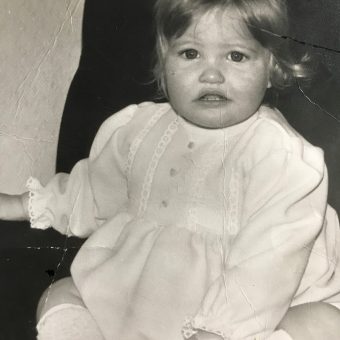
What do you know about your early cleft palate surgeries?
‘My parents were left to struggle on with very little advice and support after my cleft discovery. I was eventually admitted to hospital for my first operation as a baby, and my parents had to hand me over to hospital staff. Fortunately, this operation was successful but another was required as the whole cleft was not fully repaired.
My second operation was not until I could walk and I have memories of this admission, all of which are unpleasant. I remember a bleak, lonely place and being on my own in a room for long periods. I remember my father being ushered out of a treatment room by staff, despite me pleading for him.
My mother informed me that the operation was unsuccessful and I was eventually discharged with a large cleft remaining.’
What were your early school years like?
‘I was brought up on a large council estate in the North East of England. I attended nursery, then primary school, and developed well. I learnt to eat despite having a large cleft but had a few bad experiences of food getting stuck. I learnt what foods didn’t work for me (such as cake), but I managed most things really well, even space dust (a packet of mouth crackling sugary sweets)!
My speech was affected but in my primary years the children were always nice to me and never made an issue of it. My teacher discussed the possibility of improvements being made to my speech with my parents when I was 9 years old.
My parents took me back to the doctors and I was referred to speech therapy and orthodontics. A brace was made and teeth were removed. Unfortunately, the brace made no impact whatsoever on my speech, and surgery was never offered to me as an option at this time.’
What about secondary school?
‘Upon entering secondary school, people would make comments about my speech and things became very difficult.
I was bullied badly and fun was made about my speech. I became very self-conscious about how I sounded and began to speak more quietly. I felt unable to fight back at the bullies because they were ridiculing my speech, so I felt powerless and unable to answer back and defend myself. I became withdrawn, hated myself and was very depressed.
I didn’t discuss the bullying with my family because my cleft was always a taboo subject. I felt embarrassed and ashamed of my cleft and just wanted to be someone else. I thought I was ugly and that nobody would ever want to be with me.
After months of bullying and tolerating this, things eventually began to settle down. I found some good friends and they helped me get through, along with my family who were unaware of the bullying at the time but always loved and cared for me.
At the age of 14 I began to explore options to repair my cleft. I was having ongoing dental treatment and had further braces fitted. The consultant orthodontist referred me to a surgeon when I was 16, and I attended the appointment without the knowledge of my parents or family. The surgeon had no options to offer me at the time.
I studied hard at school and have always been a very driven and determined person. I went to college and then secured a place at University. I began dating and socialising more regularly, and I started working in a local shop where I met new friends, some of whom I am still in touch with today.’
What were your experiences at University?
‘I went to University away from home when I was 18. I enjoyed meeting new people, looking after myself and partying a lot more.
Whilst at University I visited a counsellor and discussed the distress I felt around my cleft. She referred me to the City health services and I saw a speech therapist who encouraged me to listen to my voice, as this was something I had never done before. I was unaware of how I really did sound to others, but gauged this by the reactions of people and their subtle facial expressions.
I eventually saw a surgeon who unfortunately had no options for me. I was then 21 years old and came to the conclusion that my cleft was something I would have to live with.’
How did your cleft affect you as you began your career?
‘After University, I spent 3 months living and working in America. I returned home and secured a job in psychiatric care, which I loved. I later trained as a social worker, qualifying at 24 years old.
In my early career, I struggled to confidently speak at multi-agency meetings and presentations. I was self-conscious, shy and lacked experience. However, as time progressed, I moved on. I developed my skills, knowledge and experience, and eventually became a Principal Social Worker.
I got married, had a child, and I am now happily divorced.’
How did you eventually come to have your cleft repair surgery?
‘In my 40s, my new dentist discussed the possibility of referring me for surgery, and I agreed in an attempt to see what might be available.
I have always found talking about my cleft extremely distressing, and my initial consultation was no exception. Having, and living, with a cleft was something very personal and distressing to me. My self-esteem and confidence was affected and I worried about later life. For example, what if I ended up in a care home and food got stuck in my cleft?
I met with the consultant who told me he could completely repair my cleft using buccal flap surgery. Here I was, now over 40 years of age, being offered what I had been searching for since the age of 14!
At this point I knew I had to discuss my cleft with my mother to gain more details about my medical history and inform her that I was going ahead with the operation. No wonder my cleft was a taboo subject, because my mother and father must have gone through hell looking after me in my early years.
I really liked the surgeon and after a few exploratory appointments, I felt confident that he could help me. I was placed on a waiting list and admitted for the operation.
I had to stay in hospital for 5 days and after the surgery I experienced discomfort, couldn’t talk well and struggled to eat solid foods. But, this temporary situation was worth it. The surgery went really well and the surgeon was fantastic!
I am glad I went ahead and would recommend the surgery to others. My confidence has improved because I know my cleft is fully repaired. I am now able to talk a lot more about my cleft with others without becoming distressed. My family also now talk about my cleft without it seeming like a taboo subject.’

Is there anything else you’d like to say to anyone reading this post?
‘I felt that it was important to write this story to inspire others to go ahead with this surgery if they were undecided. I also wanted to align with the cleft community because I am part of it.
In my pre-surgery life, I pretended that the cleft didn’t exist. Most people had no idea I had a cleft, but there was always the odd person who would make a negative remark about my speech and remind me of those terrible adolescent days.
I am now practicing as an Independent Social Worker, working for myself. I strongly believe that having a cleft has led me to a career in social care and I am a better social worker because of my life experience. I remain passionate about improving people’s lives for the better and challenging social injustice.’
